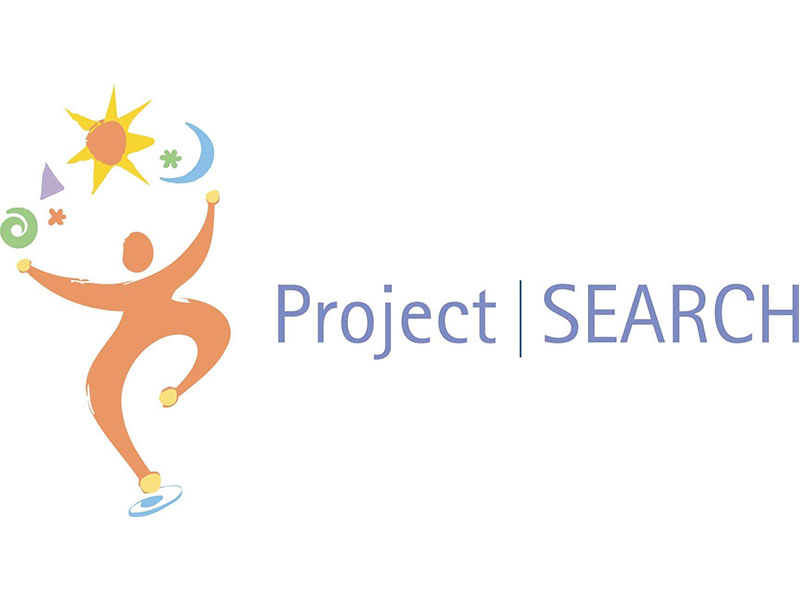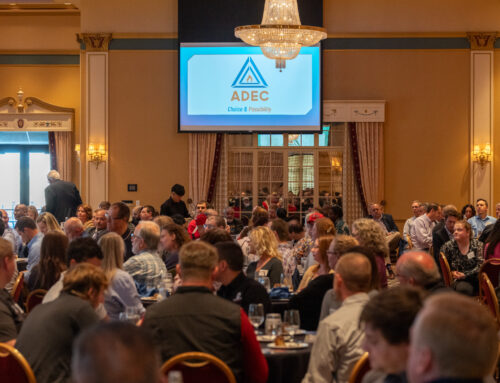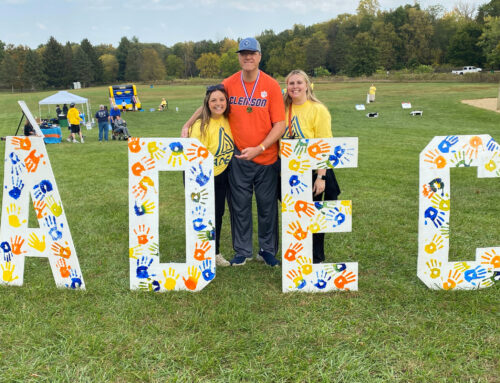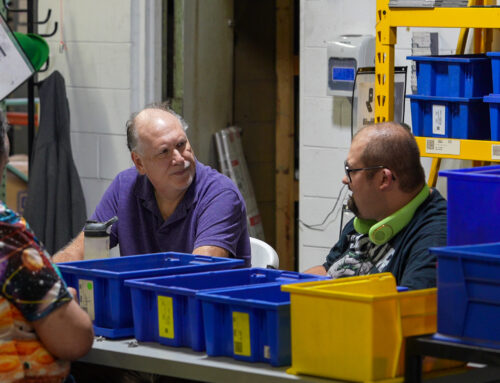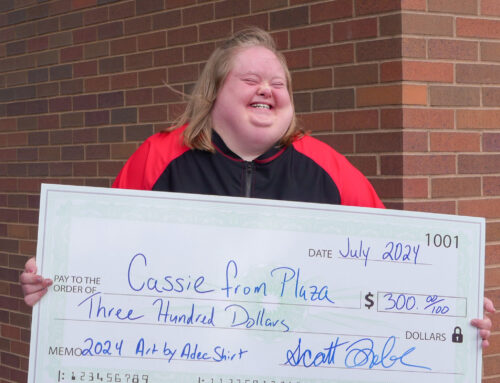
Molly Schmidt, a Project Search student, checks in for her work rotation at Memorial Hospital South Bend.
Molly Schmidt wakes early to prepare for work. She dresses in brown scrubs and packs a lunch in her bright polka dotted lunchbox. She arrives at Memorial Medical Plaza in South Bend promptly at 7:45 a.m. Here Molly works as a dining room attendant, wiping tables down in the large hospital cafeteria.
Molly participates in Project SEARCH, a nine month job training program for individuals with significant cognitive barriers. ADEC brought the program brought to South Bend four years ago. Project SEARCH is a collaborative venture between ADEC, South Bend City Schools, Memorial and Vocational Rehabilitation.
This year’s class started August 20, and Molly is one of the first students to be placed on a job rotation this year.
When Molly arrives for the day, she spends time with the other 12 Project SEARCH students practicing water cooler conversations, role playing possible work scenarios and learning job skills such as how to call in sick or ask for vacation.
The Project SEARCH classroom looks like a high school classroom. Posters with messages like, “Take pride in Memorial and your work,” “Everyone hears your conversations on the elevator!” and “Have fun, laugh together and SMILE!” line the walls. The white board holds answers from exercises completed the day before.
This year’s class of 13 students gathers around tables and listens attentively as each person shares about Labor Day weekend activities.“From 7:45 until 8:45, we go over life skills and talk with each other to exercise social appropriateness,” Katelyn Andrysiak, ADEC Lead Job Coach explains. “When we first started it was awful. They [the students] didn’t know what to do. But now we are two weeks in and, as you can see, it’s getting easier.” Molly then gathers her things and prepares to head to the dining room. Another classmate, Emily, goes to the pediatric ward for her first day on the job as a pediatric assistant. Both are accompanied by Katy Gerring, ADEC Team Leader and Project SEARCH Coordinator, and Katelyn as they navigate the complex halls of Memorial.
Once Molly arrives in the dining room, she heads to the back to put her lunch with her coworkers’ lunches, wash her hands and put on a hair net. Then she gets to work in the dining area, methodically spraying disinfectant on each corner of the tables and wiping carefully. Her pride in the task is evident. She will continue this job until lunch time, when she takes a break to eat with her coworkers and practice the social skills she’s learned in the classroom. Then she will go back to work until 2 p.m., when she heads back to the Project SEARCH classroom to talk about her day and work on job skills.
Throughout the day, Katy and Katelyn work with the two ladies on growing job skills and introducing new tasks. The other students continue to work on developing job skills and appropriate workplace behavior in the classroom with Anne Long from the South Bend school system. Anne teaches these skills through role play exercises, questions and group discussion. The students will receive job placements incrementally to allow time for initial training and undivided attention for each student beginning a rotation. Each rotation lasts for three months before the student moves on to another in order to build up job skills and then be eligible for a greater variety of permanent positions.
As Molly, Emily and the other students become comfortable and confident in their positions, the career job search will begin. This generally kicks off in December and students are placed in permanent positions throughout the year, with the goal of 100 percent placement by October of the following year. Last year, Project SEARCH achieved 100 percent placement with their seven students by early June.

Students in Project Search, a school-to-work program, gather for a photo before the start of another busy day. (ADEC Photo by Rod Tackett)
This year, three new departments are offering rotations for the students—information desk, maintenance and landscaping. Katy and Katelyn decided to have the students go through a true interview process with each department offering a rotation. Students selected which rotations to pursue and two or three went up for the same positions. The departments made the ultimate hiring decision.
“It’s more realistic this way,” Katelyn explains. “We have feedback from the departments, and whoever gets in, gets in. And we move on to the next rotation.”
And just like that, Project SEARCH continues to prepare students for careers in the Michiana area.

